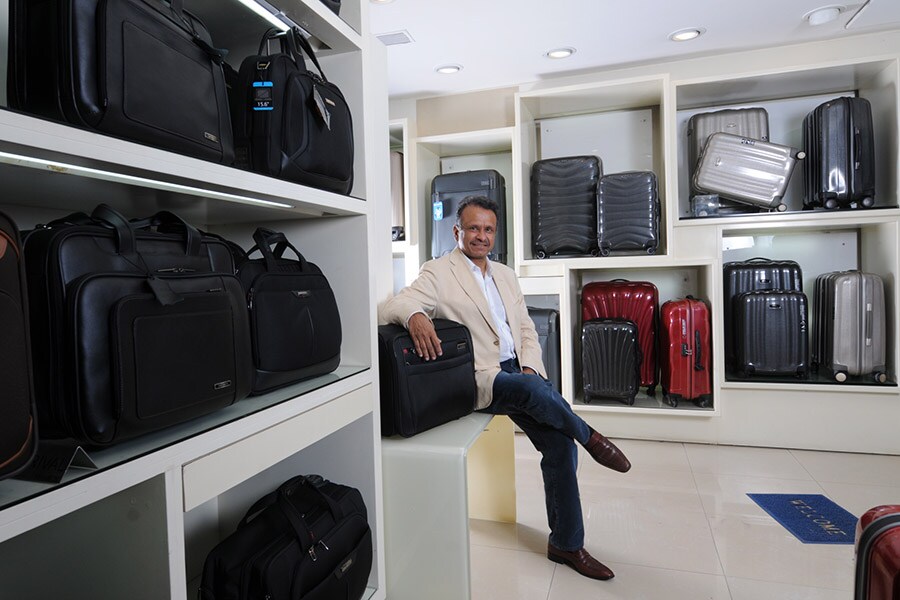Samsonite strengthens its digital presence with Colorado-based eBags acquisition
All-cash acquisition to be completed by July-September this year



Ramesh Tainwala, CEO, Samsonite (Image: Mexy Xavier)
Companies in the luggage space please note, Samsonite International—the world’s travel luggage maker, which announced the $105 million cash acquisition of Colorado-based online retailer eBags—continues to be in “acquisition mode". Samsonite’s current CEO Ramesh Tainwala said the company will continue to look for opportunities in the physical and digital space. “We will continue to look at, in some cases, distribution lines and in some cases, key brands," he told media on Tuesday. Handbags and outdoor travel luggage have been identified as areas of opportunities in coming years.
Samsonite had completed the $1.8 billion acquisition of luxury brand Tumi in 2016, Italian retail chain Chic Accent for €8.5 million in 2015 and Rolling Luggage, one of the leading airport retailers of branded luggage and travel products for GBP 15.75 million, in 2015.
Samsonite’s latest acquisition of eBags, being done through internal reserves and revolving credit facility, is expected to be completed by the third quarter of 2017.
eBags is currently not profitable, Tainwala said, without disclosing details. It recorded net sales of $158.5 million for the fiscal year ended December 31, 2016.
eBags, which currently sells Tumi, Samsonite, Kenneth Cole, Patagonia and North Face brands on its website.
The acquisition is part of Samsonite’s ongoing strategy to accelerate the growth of direct-to-consumer, ecommerce business and strengthen its existing digital presence.
Currently around nine percent of Samsonite’s global revenues come from digital commerce, which Tainwala hopes would reach 25 percent in the next five years.
“We are finding more and more that the online and offline shopping experience for consumers is getting blurred," Tainwala says.
“eBags is strategically the most important acquisition for Samsonite over the past 20 years," Tainwala told media. Samsonite plans to take eBags global and in-turn expand its online presence in North America, Europe and Asia.
Samsonite had the option to build and expand its own digital platform, but realized that the process was “going very slow." eBags saves us five years and gives us a well-established technology platform," Tainwala added. eBags, which has 55 million visitors each year, 15 million active email subscribers and 3.2 million customer reviews, has been top ranked by Google, for search and mobile speed.
Samsonite has a near 12 percent global market share, through 62,000 retail stores, but the majority 68 percent of its sales come from third party dealers.
Tainwala said it will launch eBags in India 2018, as part of its global expansion plan to other parts of the world, specifically mentioning parts of Europe and South Korea, Australia and Japan. The top management of eBags, currently headed by CEO Mike Edwards, will continue to run the company.
Samsonite, which continues to battle for market leadership in India, with the traditional brand VIP, recorded a near 20 percent jump in sales for the first half of 2017.
Tainwala however believes that this high growth could be because Indian consumers might have “preponed" some of their purchases. “Sales for the second half of the year will moderate," he said, and could touch around 10 percent for the full year, due to factors relating to the introduction of the Goods and Services Tax (GST), next month.
First Published: Jun 27, 2017, 20:08
Subscribe Now